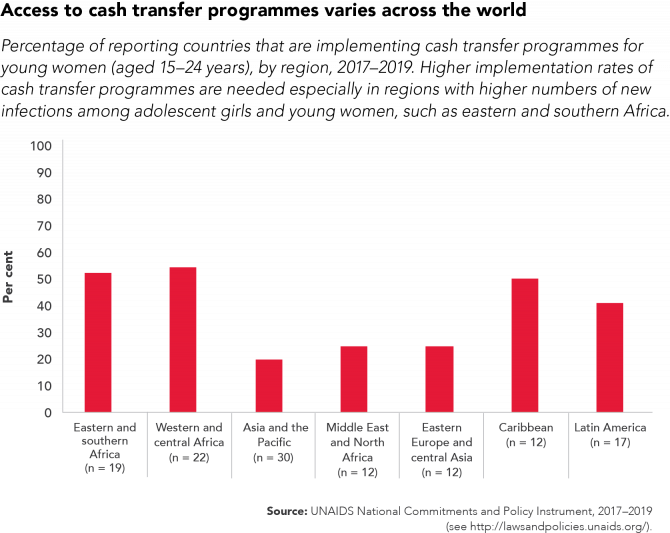

Update
Cash transfer schemes reduce the chances of adolescent girls and young women contracting HIV
20 January 2020
20 January 2020 20 January 2020Efforts aimed at redressing gender inequalities and socioeconomic inequities can mitigate factors that fuel the HIV epidemic.
In a study in Eswatini, cash transfers aimed at keeping adolescent girls and young women in school and giving them greater financial independence resulted in the odds of the recipients becoming HIV-positive being 25% lower than for people who were not eligible for the incentive.
Studies from Eswatini, Lesotho, Malawi and the United Republic of Tanzania show that cash transfers help young people, especially girls, stay in school longer and do better in their studies. Other evidence indicates that cash grants that enable girls to continue their schooling also delay their sexual debut, increase their use of health services, reduce teen pregnancies and early marriage, and can promote safer sexual behaviours.
